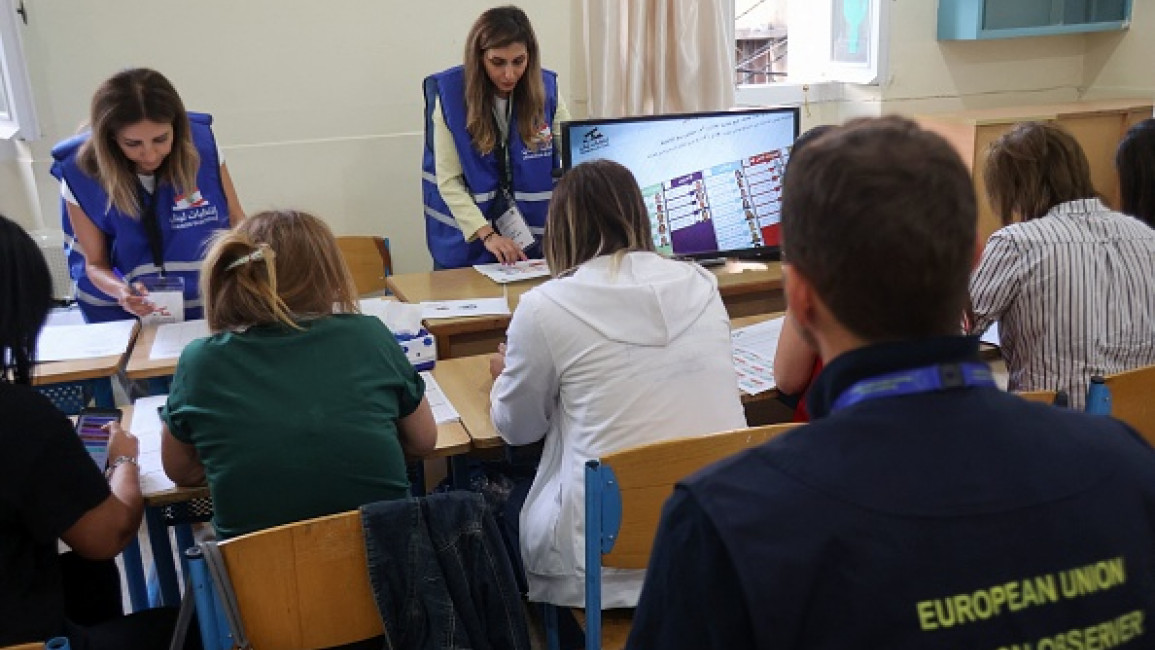Lebanon election marred by vote-buying, violations: EU observers
Welcome to The New Arab's coverage of Lebanon's General Election 2022 held on May 15, 2022. Follow live updates, results, analyses, and opinion in our special hub here.
EU Election observers delivered a critical assessment of Lebanon’s 15 May parliamentary elections, pointing to instances of vote-buying and intimidation as violations of the electoral process.
The preliminary report, released by the EU Election Observation Mission to Lebanon on Tuesday, recorded instances of electoral violations on election day and the preceding campaigns.
The report said that the clientelism that characterised many election campaigns “distorted the level playing field and seriously affected the voters’ choice.”
Lebanon has historically been dominated by sectarian parties that offer services in exchange for political support, a practice enabled by a lack of public services.
In the run up to the 2022 elections, it was not uncommon to see roads being re-paved and parcels of food distributed in an attempt to buy voters’ loyalty.
A number of prospective voters in different electoral districts also told The New Arab that they had been offered goods by local political machine representatives before 15 May.
The electoral mission also reported a number of violations on voting day, including the total number of ballots not being counted before being opening. It also noted that domestic elections observers were threatened, harassed and even “physically aggressed” in some villages.
Videos of competing parties fighting with one another in rural areas – particularly in the south of Lebanon – circulated social media on Sunday. In one instance, a reporter from local media outlet Megaphone, was assaulted after taking a picture of what they suspected to be vote tampering.
EU observers also noted that less than half of polling stations were accessible to voters with reduced mobility – a consistent problem in Lebanon despite the existence of a disability rights law.
Poorly trained poll workers also led to errors, such as party representatives – nominally present in an observatory capacity – interfering in the work of polling staff or influencing voters.
The Lebanese Association for Democratic Elections (LADE), reported that among other violations, it witnessed 623 instances of party representatives entering voting booths with voters.
LADE also shared a video which appeared to show pro-Hezbollah volunteers stuffing ballot envelopes, though the veracity of this video has not been confirmed.
The report also criticised the legal framework around Lebanon’s elections laws, including a “lack of transparency and accountability” around campaign finance law. The poor campaign finance laws “allowed for the proliferation of vote-buying practices.”
The final voter turnout in Sunday’s election was 41 percent, down from nearly 50 percent in the previous election in 2018.
Voters delivered an upset to establishment candidates, with independent candidates and Christian party Lebanese Forces causing the pro-Hezbollah bloc to lose its parliamentary majority.



